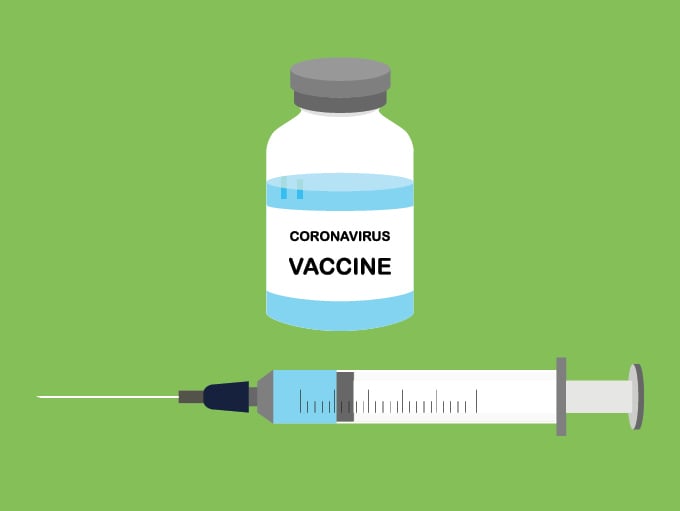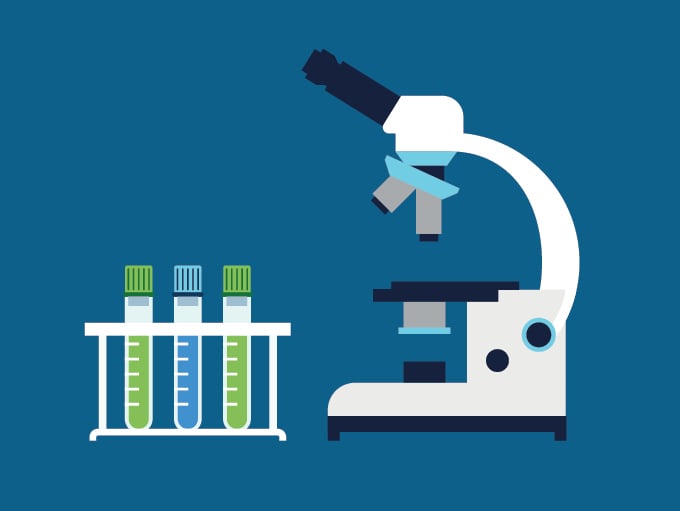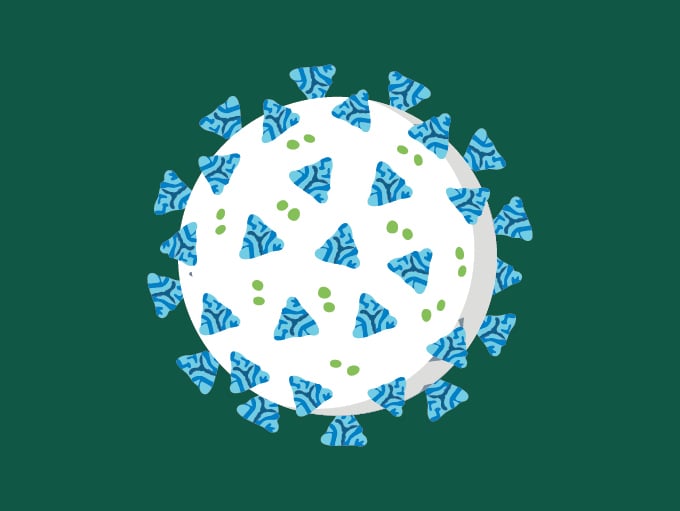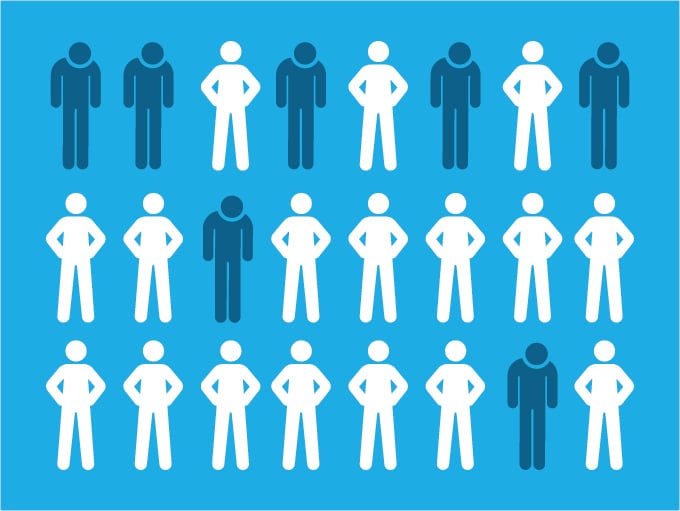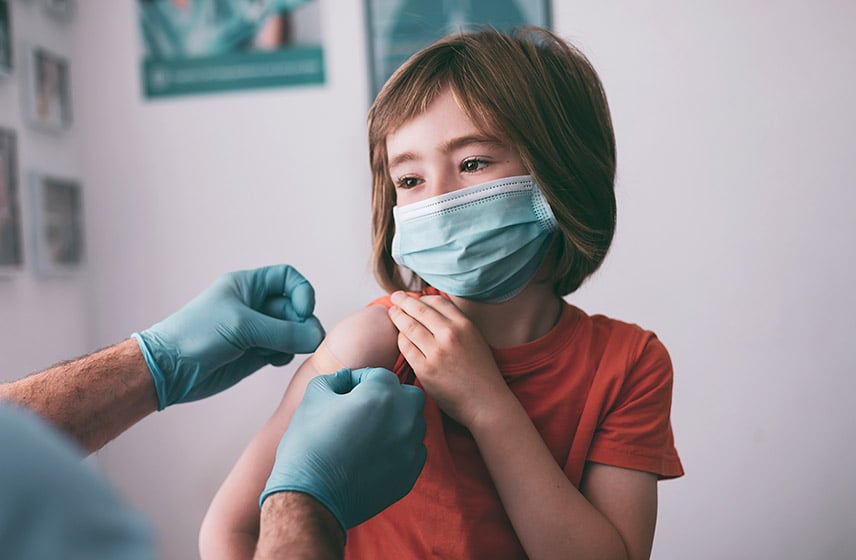
COVID-19: What You Need to Know About the Vaccine
We now know that the vaccines are working, but that booster doses are needed to help keep us protected. That’s why we strongly encourage you to get the vaccine and follow guidelines for boosters.
How Can I Get My COVID-19 Vaccine, Third Dose or Booster?
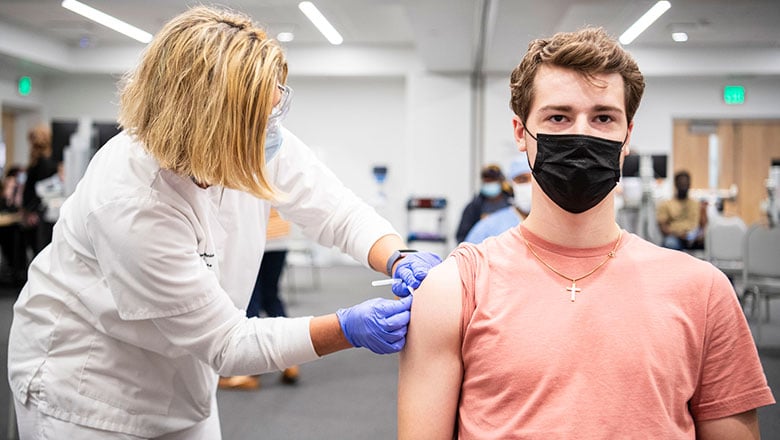
Is it your first dose?
Everyone ages 6 months and up can now get the COVID-19 vaccine. The Pfizer and Moderna vaccines are approved for emergency use by the FDA and CDC for those ages 6 months to 15 years. It's fully approved for those ages 16 and older. The Moderna vaccine is fully approved for those 18 and older, and the Johnson & Johnson vaccine is authorized for those 18 and older.
Do you need a booster?
Studies show that COVID-19 vaccine protection decreases over time. Boosters offer extra protection, especially against severe illness that can lead to a hospital stay or even dying from the virus.
Here is when the FDA and CDC recommend boosters, based on your age and which vaccine(s) you've already received:
- Ages 5 to 11 can get a booster dose at least 2 months after they received their original vaccine or booster shot.
- Ages 12+ can get a booster dose of the updated Pfizer vaccine two months after their second primary dose or last original booster dose. The original Pfizer booster is no longer authorized for ages 12+.
- Ages 18+ can get a booster dose of the updated Pfizer or Moderna vaccine two months after their second primary dose or last booster dose. Those who got the one-dose Johnson & Jonson vaccine can get a booster of any COVID vaccine at least two months after their first dose.
- Ages 50+ can get a second booster of the Pfizer or Moderna vaccine at least four months after their first booster.
You can receive an updated booster dose of the Pfizer vaccine at Cleveland Clinic. We aren’t currently offering the Moderna or Johnson & Johnson vaccines.
The latest COVID-19 booster is available for kids ages 5 to 11. This new bivalent booster is expected to provide better protection against currently circulating strains of COVID-19, including Omicron.
Plus, kids ages 6 months to 5 years can now get the latest COVID-19 bivalent vaccine as their third Pfizer dose. Not sure if your child is eligible? Contact your pediatrician’s office.
Are you immunocompromised?
The FDA and CDC have approved additional doses of the COVID-19 vaccine for certain people with compromised immune systems.
- Adults ages 18 and over who received a three-dose series of the Moderna or Pfizer vaccine may receive a booster (fourth dose) of the vaccine at least three months after their third dose.
- Adults who received the one-dose Johnson & Johnson vaccine should receive a second dose of either the Moderna or Pfizer vaccine at least four weeks after their initial dose. A booster dose (third dose) of the Moderna or Pfizer vaccine is recommended at least two months after the second dose.
- Children ages 12 to 17 who received three doses of the Pfizer vaccine may receive a fourth dose of the vaccine at least three months after their third dose.
- Children ages 5 to 11 can receive a fourth dose of the Pfizer vaccine at least five months after their third dose.
Extra doses can provide added protection from severe illness or death from COVID-19 in patients who may have a weakened response to vaccination due to certain medical conditions or medications. If you're eligible for additional doses and have questions, we encourage you to speak with your healthcare provider.
Pfizer third doses for those who are immunocompromised can be scheduled 28 days after your second dose.
How Do I Schedule My Appointment?
Ohio
Cleveland Clinic continues to receive doses of the adult and pediatric Pfizer vaccines. We currently offer vaccinations to those ages 6 months and up.
To schedule an appointment for children under the age of 5, please contact your pediatrician’s office. You also may be offered a COVID-19 vaccine for your child during a regularly scheduled appointment. If you are scheduling an appointment booster for kids ages 5+, you can schedule an appointment at any of Cleveland Clinic's vaccine sites.
Please note, those under the age of 18 who are coming to a Cleveland Clinic vaccination site must be accompanied by a parent or guardian or provide written consent from their parent or guardian in order to receive the vaccine.
If you or your child are a Cleveland Clinic patient or Ohio resident and are interested in getting the COVID-19 vaccine at one of our vaccination sites, please visit our Ohio vaccination page.
Florida
All Floridians ages 6 months and up are eligible to get a COVID-19 vaccine. We are not currently scheduling appointments for ages 6 months to 5 years at our Martin Health pediatric locations. We will provide more information soon.
You or your child must be an established patient who has seen a Cleveland Clinic Florida provider in the last two years for outpatient or inpatient care. Those under the age of 18 who are coming to a Cleveland Clinic vaccination site must be accompanied by a parent or guardian or provide written consent from their parent or guardian in order to receive the vaccine.
If you or your child are a Cleveland Clinic patient and are interested in getting the COVID-19 vaccine at one of our vaccination sites, please visit our Florida vaccination page.
Why Should I Get the COVID-19 Vaccine or a Booster (If I’m Still on the Fence)?
It's the best way to slow this deadly pandemic.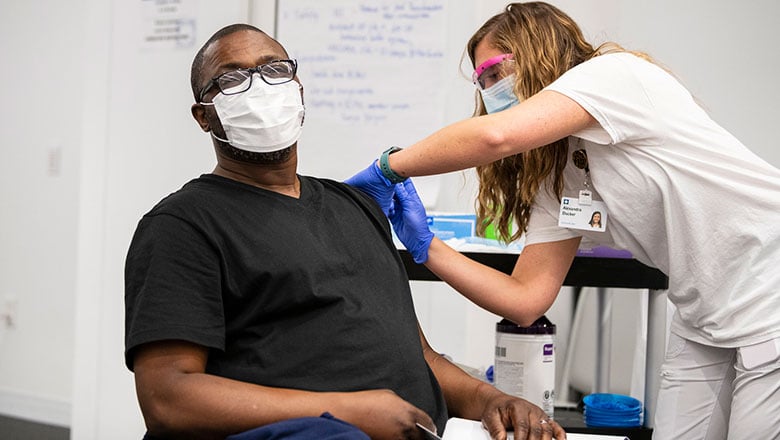
There are three different COVID-19 vaccine options available in the U.S., and all are safe and provide powerful protection against severe illness and death from COVID-19. If you have questions about the vaccines, talk to your healthcare provider:
- Pfizer: This vaccine has been approved for emergency use for those ages 6 months and up. The Pfizer vaccine is fully approved for those 16+.
- Moderna: This vaccine has been approved for emergency use for those ages 6 months and up. This vaccine has been fully approved for those 18 and older.
- Johnson & Johnson: The vaccine has been authorized for emergency use for those 18 years and older.
We understand that you might be unsure about getting your COVID-19 vaccine or booster. Maybe you’re not sure what to expect, are worried about side effects or you aren’t sure if it’s right for you.
Why you should consider getting your vaccine or booster
- To protect yourself: Getting the vaccine and booster dose is the best way to protect yourself from severe illness or death from COVID-19. While some breakthrough cases are being reported, those who have been vaccinated generally have milder cases or don’t have any symptoms. Over time, protection from the COVID-19 vaccine decreases. A booster dose helps provide continuing protection from getting infected with COVID-19 and experiencing severe symptoms.
- To protect those around you: If you get sick, you could spread the virus to others. Getting the vaccine — while continuing to wear a mask and practice social distancing — will help keep your friends and family safe, especially those who may be at risk for a severe case of COVID-19.
- To protect your community: For the vaccine to be effective against COVID-19, we need enough people to get vaccinated. We know that every person who gets vaccinated is a small step in the right direction.
At the end of the day, we’re confident that this vaccine is the most important public health strategy for slowing the spread of COVID-19, and we strongly encourage you to consider getting it.
Is the COVID-19 Vaccine Safe?
Yes. We strongly encourage everyone is who eligible (6 months and up) to receive a COVID-19 vaccine. Vaccination is the best way to protect yourself, your child, other family members and your community from COVID-19.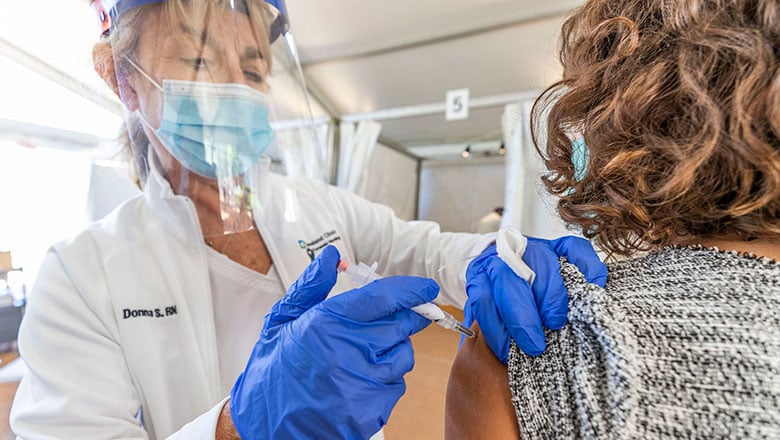
The COVID-19 vaccines have been determined to be safe and effective. All vaccines must go through rigorous clinical trials to determine safety and efficacy, and no safety shortcuts were taken as they were developed.
As with many vaccines, you may be sore where it’s injected. You may also develop fatigue, fever and muscle aches afterward. This seems to be more common with the second dose of vaccine. If this happens, it means your immune system is taking notice of the vaccine and reacting.
Can vaccinated people still get COVID-19?
No vaccines are 100% effective. In fact, breakthrough cases (when someone tests positive for COVID-19 more than two weeks after they're fully vaccinated) are expected. Breakthrough infections are more common in indoor settings with large groups of people, the elderly and in individuals with compromised immune systems. However, the vaccines greatly reduce the risk of severe illness or death from COVID-19. For more information on the safety and efficacy of the COVID-19 vaccines, visit the Center for Disease Control and Prevention (CDC) website.
Should I be concerned about a severe allergic reaction to the COVID-19 vaccine?
No. Allergic reactions, including shortness of breath and hives, were uncommon during COVID-19 vaccine trials. All recipients receiving the vaccine will be monitored for at least 15 minutes after vaccination for possible immediate hypersensitive reactions. If you have a history of allergic reactions to vaccines, talk to your healthcare provider before receiving a COVID-19 vaccine.
What side effects can I expect from the vaccines?
In the Pfizer, Moderna and Johnson & Johnson clinical trials, the vaccines were very effective with only mild side effects that are common in all vaccines. These include fever, fatigue, muscle aches and headache.
How does the Johnson & Johnson vaccine differ from mRNA vaccines?
The Johnson & Johnson vaccine uses DNA from the COVID-19 spike protein into a virus called an adenovirus (the type of virus that typically causes colds) instead of mRNA. You only need to get one dose instead of two. In the phase 3 clinical trial, the vaccine was shown to be 66% effective in preventing moderate and severe COVID-19 disease 28 days after vaccination. Overall, the vaccine was also 85% effective in preventing hospitalization and 100% effective in preventing death, 28 days after vaccination.
Is the COVID-19 vaccine safe for children?
Vaccinating your child is their best line of defense against catching COVID-19. Children can become severely ill from acute COVID-19 or from multisystem inflammatory syndrome (MIS-C) – a prolonged illness caused by COVID-19, which affects multiple organs. Children can also transmit the virus to someone else, so it’s important that they get vaccinated.
Similar to the first authorized COVID-19 vaccines for adults, the Pfizer and Moderna vaccines went through rigorous testing and analysis to determine their safety and effectiveness in children ages 6 months and up before they were made available to them. Because children’s immune systems are different than adults and change as they age, vaccines are tested and approved for different age groups.
Pfizer and Moderna's pediatric vaccines for ages 5 and up are given in two doses, 21 days apart (Pfizer) or one month apart (Moderna). For children under 5 who are eligible, the Pfizer vaccine is given in three doses, the first two doses 21 days apart, followed by a third dose at least 2 months after the second dose. Moderna's pediatric vaccine for children under age 5 is two doses, given one month apart. However, the Pfizer and Moderna pediatric vaccines both have a smaller dose than those for ages 12 and older.
Medical trials involving children follow strict protocols to ensure their safety. Find answers from our pediatricians to your pressing questions about vaccinating your children under five.
If I’m pregnant, breastfeeding or trying to conceive, can I get immunized?
Based on current research and safety data, the CDC recommends that women who are pregnant, breastfeeding or trying to get pregnant be vaccinated against COVID-19. We encourage you to talk to your Ob/Gyn if you have questions or concerns about getting vaccinated.
If I've had COVID-19, should I get vaccinated anyway?
We still recommend that you get the vaccine even if you’ve had COVID-19. However, you may consider waiting 90 days after getting infected as it’s not common to get COVID-19 again within three months of first being infected.
Why do I need a booster dose of the COVID-19 vaccine?
COVID-19 vaccines are working to prevent severe illness, hospitalization and death. However, public health experts are starting to see a decrease in protection from the disease over time. A booster dose increases your protection against getting infected and experiencing COVID-19 symptoms.
How many doses are necessary for people with weakened immune systems?
- For adults with compromised immune systems who received three doses of the Pfizer or Moderna vaccine, a fourth dose is recommended and must be given at least three months after the third dose.
- For adults who received the one-shot Johnson & Johnson vaccine, a second shot of the Moderna or Pfizer vaccine is recommended at least four weeks after the first dose. A booster (third dose) of the Moderna or Pfizer vaccine is recommended at least two months after the second dose.
- For children ages 12 to 17 with compromised immune systems, a fourth dose of the Pfizer vaccine may be given at least three months after the third dose.
- For children with compromised immune systems, the FDA has authorized a fourth dose of the Pfizer vaccine for those ages 5 to 11, at least five months after the third dose.
Can I receive a booster dose of a different vaccine brand?
The FDA and CDC have authorized receiving a booster dose of a different vaccine brand than your initial vaccine brand. For example, if you received an initial dose of the Johnson & Johnson vaccine, you can receive a Pfizer or Moderna booster dose.
